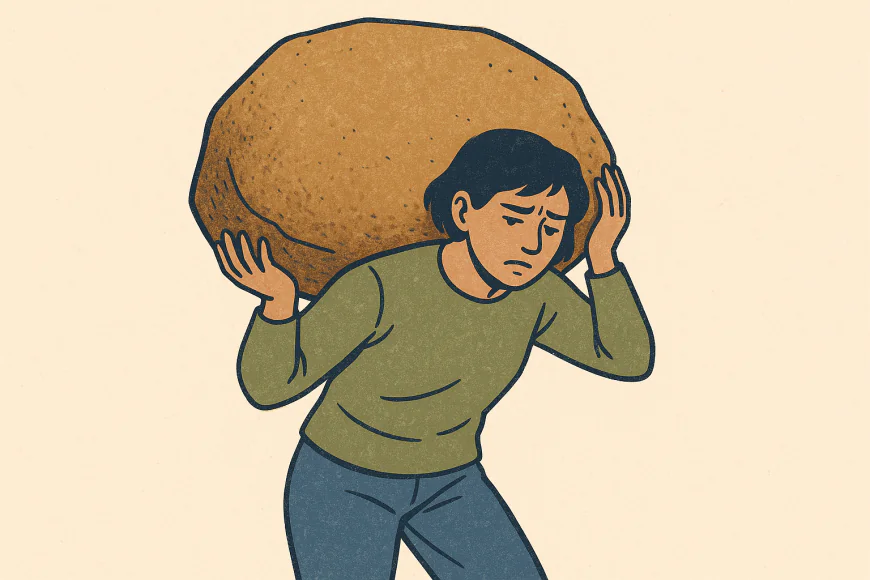Calm Isn’t Always Instant—But It’s Still Possible
Finding Strength and Peace in a World Full of Stress

We don’t need anyone to remind us how stressful life can be.
The rising cost of living. The pressure to perform at work. The unease we feel scrolling through headlines. The silence after an argument at home. The uncertainty of illness or loss. These are not fleeting moments—they’re realities many face daily. And for some, it all builds quietly until they feel like they’re carrying more than they can manage.
Anxiety can sneak in through dozens of doors, and it rarely announces itself.
But here’s something worth reflecting on: experiencing anxiety doesn't mean you're broken. It means you're human.
Even some of history’s most admired figures—leaders, writers, thinkers—spoke of their inner struggles. One such figure described feeling “grief in my heart each day,” while another, on the eve of a life-defining moment, expressed intense distress, needing to pause, breathe, and seek strength before continuing. Even with support, their anxiety didn’t disappear immediately.
And that’s one of the most misunderstood truths: calm is not always instant. It doesn’t always arrive like a switch flipping. Often, it’s a process—one that takes intention, practice, and sometimes help from others.
So how do you begin that process when you’re already feeling weighed down?
1. Let It Out Somewhere
When anxious thoughts build, many people instinctively keep them bottled inside. But like pressure in a sealed container, that tension will find a release—often in ways we don’t expect or want.
Journaling, voice memos, talking to a trusted friend, or simply whispering the truth of what you're feeling into an empty room can help externalize what’s internal. Even a simple statement like “This is heavy right now, and I don’t know what to do” can be a relief.
Sometimes we can throw our worries off in a dramatic moment. Other times, they’re too heavy to lift all at once. In those cases, imagine rolling them away slowly—bit by bit.
2. Ask for Help, Even Quietly
It can be hard to ask for help. But the calm we seek often arrives through people who genuinely care. A conversation. A kind message. A little reminder that you’re not the only one carrying invisible weight.
If you're someone who supports others, keep reaching out. And if you're the one in need? It's okay to accept encouragement—even if you’re not used to it.
3. Revisit a Thought That Grounds You
Maybe it’s a quote. A memory. A sentence that once gave you clarity. For some, it’s a childhood moment of peace. For others, it's a simple phrase: “You’ve been through worse.”
Find one and sit with it. Meditate on it, not to ignore the problem, but to calm the racing mind long enough to see more clearly.
A line worth remembering:
Strength isn’t pretending you’re not anxious. It’s learning to keep moving while the anxiety loses its grip.
4. Stillness Creates Space for Perspective
In the midst of chaos, calm doesn’t always mean the absence of noise. Sometimes, it means finding one quiet square inch inside your mind and resting there for a moment.
Take a walk without your phone. Breathe through your nose slowly, three times. Read one page of something you’ve already read a hundred times. The goal isn’t to fix everything—it’s to pause everything long enough to breathe.
The Calm You Build
Calm isn’t one-size-fits-all. It’s not always about being serene. It’s about returning to a place—mentally or emotionally—where you're able to function, think clearly, and even hope.
For some people, calm arrives through faith. For others, through friendships, routine, creativity, or physical movement. But for everyone, it begins with the choice to slow down and respond instead of react.
The world isn’t going to become less stressful overnight. But your response to it can change.
And sometimes, the calm you build in one hard moment becomes the strength that carries you through the next.


